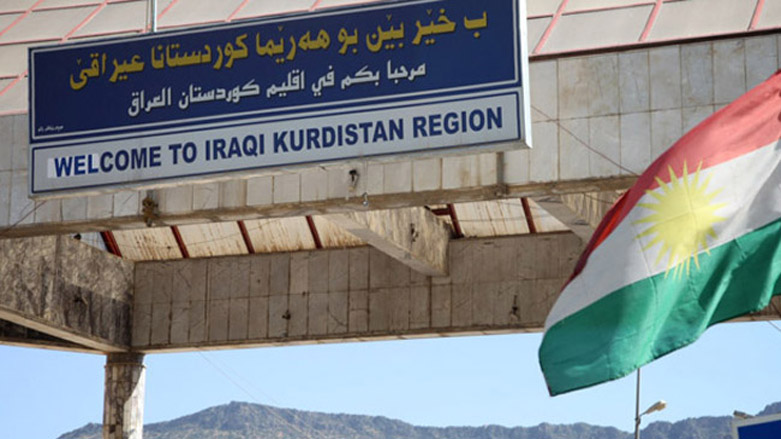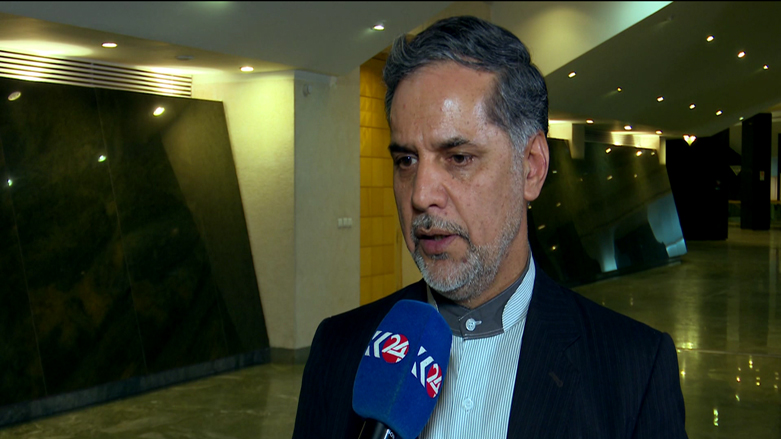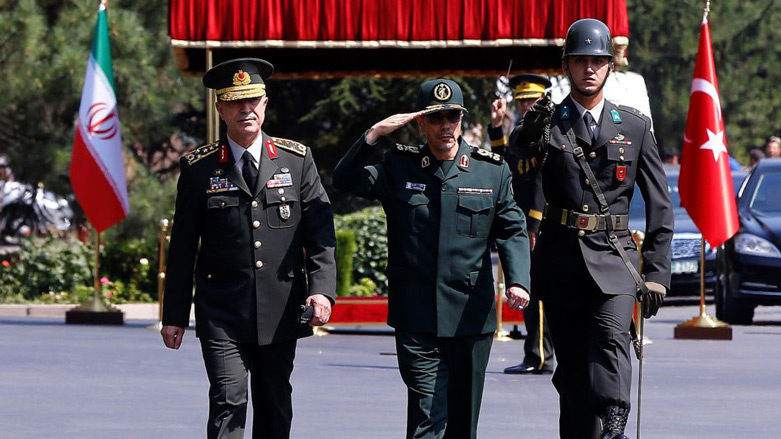Iran, Turkey won’t close borders with Kurdistan: Kurdish trade union

ERBIL, Kurdistan Region (Kurdistan 24) – A Kurdish business union on Thursday announced they believe neighboring countries like Iran and Turkey would not close the borders with the Kurdistan Region, saying it would hurt their interests in the region.
In a press conference, Mustafa Abdulrahman, the chairman of the Kurdistan Regional Government (KRG) Union of Exporters and Importers, explained that the neighboring countries would face economic losses if they were to close borders with the Kurdistan Region, regardless of the circumstances.
“I would like to reassure all members of our union and the people of the Kurdistan Region that there we do not anticipate tensions to grow at the borders, no matter the state of affairs in the region. Neighboring countries have more interest in maintaining a relationship with the Kurdistan Region than closing their borders,” Abdulrahman said.
The KRG has scheduled a referendum on independence for Sep. 25, 2017, a move toward establishing an independent state of Kurdistan in the future.
Rumors have spread that neighboring countries will close their borders with the Kurdistan Region as a means to oppose the people of Kurdistan's march toward independence.
“These countries have extensive trade and business deals with the Kurdistan Region. Annually, Iran earns five billion US dollars in revenue by trading with the Kurdistan Region; Turkey earns $10 billion,” he continued. “They don’t want to lose their profits.”
He mentioned that both Turkish and Iranian companies have offices in the Kurdistan Region, holding annual contracts with the Kurdish authorities and that shutting down the borders would hurt their business and interests.
The head of the union also added that importers had been instructed to bring more products into the Kurdistan Region in anticipation of the upcoming events to maintain low prices "under any circumstances."
“Let’s not forget, we have two international airports in the Kurdistan Region which play a significant role in the business and trade sectors,” Abdulrahman noted.
The Kurdistan Region's private sector is dominated by foreign business, especially Turkish companies. The central and southern provinces of Iraq largely depend on the Kurdistan Region to import and transfer products from Turkey to the rest of Iraq.
So far, there have been no official statements from either neighboring countries regarding the closure of borders in spite of their hostile position toward the KRG's move toward independence.
Editing by G.H. Renaud



